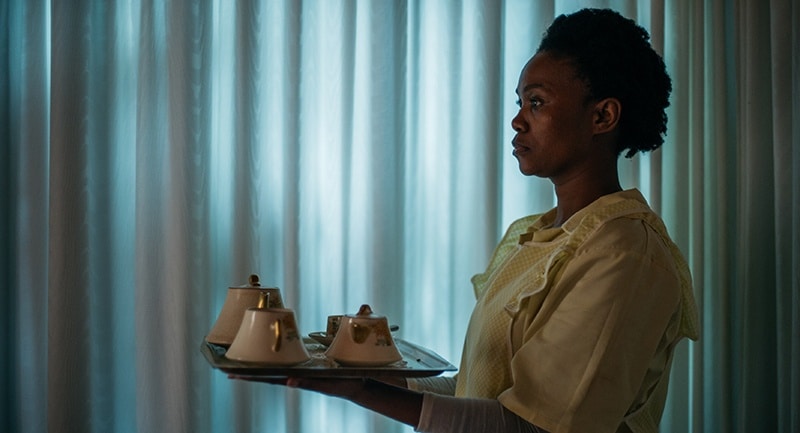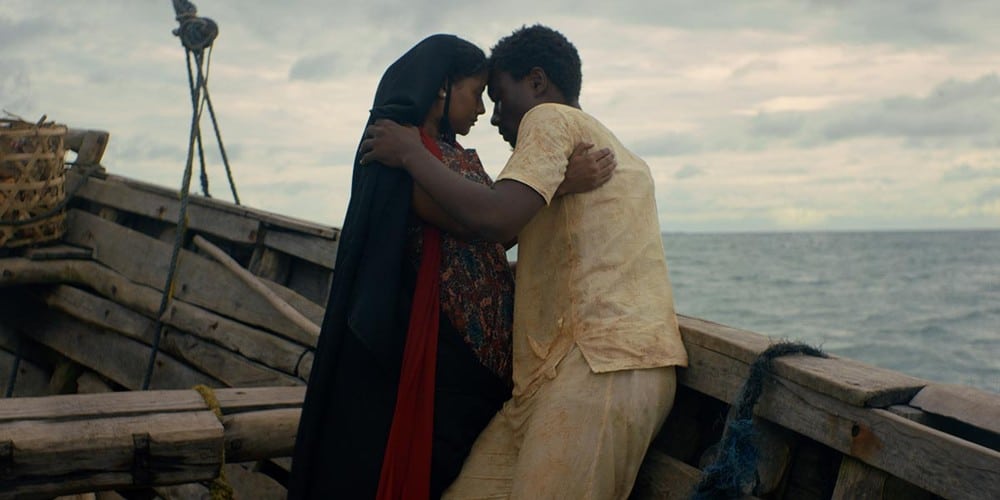Read also:
How to Watch FX Live Without CableHow To Watch AMC Without CableHow to Watch ABC Without CableHow to Watch Paramount Network Without CableThree features at the Toronto International Film Festival turn the spotlight on the best and brightest in African filmmaking.
African Cinema has produced some fantastic gems over the past several years that nearly no one will mention in their end of year lists. From mythical fables like Kati Kati, Luwalu, and Mimosas to political tragedies like The Fig Tree, Clash, Wulu, and Our Lady of the Nile, to films on identity and alienation like The Wound, to personal reflections of land and colonialism like Lemohang Jeremiah Mosese’s two films Mother I am Suffocating, This is My Last Film About You and This is Not a Burial, It’s a Resurrection – both masterpieces – this is a continent creating some of the best of the world’s cinema right now and with good volume. So naturally, I had to seek out a few African films this year, starting with The Gravedigger’s Wife.
The Gravedigger’s Wife functions similarly to Ousmanne Sembene’s classic Mandabi, where a husband’s struggles with money is at the whims of both an economy that’s over his head and at the mistreatment and deception by his own family members. Guled (Omar Abdi) is a gravedigger who needs more money for his wife Nasra’s (Yasmin Warsame) cancer treatment. He is willing to go to the village where his family is but his wife is distraught at the thought, so he looks around for work nearby. He lives in the outskirts of Djibouti, struggling to find adequate pay for odd jobs.
As a family drama, the film features poignant moments that, while surely cliché in their execution, showcase the central character’s caring and empathetic nature. The Gravedigger’s Wife, by virtue of its title, is aware of its own irony and displays this throughout. A sequence where the gravediggers complain that not enough people are dying in the country highlight the satirical humor that laces this film’s generally dire atmosphere. Guled and his family are examples of people caught between the hypocrisy of rigid traditions and the crumbling infrastructure of the modern world.
Guled elopement with Nasra sparked the ire of his family, who reject him and refuse to speak to him. His struggles to get them to understand his situation are juxtaposed in The Gravedigger’s Wife with the medical industry and its economic shackles, which prevent saving lives without monetary compensation. Two systems of life which are geared towards adherence of unempathetic modes of conduct and a rejection for the emotional aspects of human life – love and survival.

Good Madam (Mlungu Wam)
In continuing the stupendous output of cinema from Africa following The Gravedigger’s Wife, Mlungu Wam is a psychological horror film that has threads of both Jordan Peele’s Get Out and the slow-churning subliminal thrillers of Peter Strickland. It’s an interesting combination that captures the ideas of generational racism of a place and time with the technical elements of horror that create mood that unnerves.
One of the thankful parts of Mlungu Wam is that it doesn’t rely on constant visual mis-directions. It’s fine when executed well but overuse of dream sequences has been a crutch of recent mediocre horror films for some times now. Instead this movie utilizes the brilliant performance of both Chumisa Cosa (Tsidi) and Nosipho Mtebe (Mavis) to conjure up most of its queasiness and unease. Tsidi and her daughter Winnie (Kunvalethu Jonas Raziya) move into a house where Tsidi grew up. Her mother Mavis is the caretaker of the house, a suburban “McMansion” of sorts that is owned by a white madam named Diane.
Jenna Cato Bass’s status as a white woman telling this story (via Black screenwriter Babalwa Baartman) about Black South Africans calls to mind Claire Denis’s White Material. What needs to be included here in any discussion of such films is a conscious understanding that not only the film, but the production functions under different dynamics in the conversations between filmmaker and subjects of emotion. Even more so for Bass, who decided to shoot the film in a conservative white neighborhood where her cast felt out of place and were subjected to microaggressions from white residents during filming.
The filming location is very important to the story because it becomes apparent that Tsidi and her family are the only Black people present in the neighborhood. This white secluded suburb is a far cry from where most Black folks in South Africa live. Tsidi becomes increasingly haunted by memories of growing up here, exacerbated by Winnie’s approval of the place and integration into the white neighborhood, something Tsidi believes is making her daughter lose her own identity.
Bass, who is also the film’s DP, uses the house’s labyrinthine layout to create a distorting effect. Like Strickland’s The Duke of Burgundy, noises become a compass for class disparities. Accidental breaking of glass or porcelain, precious valuables of a rich woman, scrubbing of floors, the duty of her subordinates – all of these sensations are melded together to create a feeling not just of monotony, but also entrapment. As Winnie notes, “We have to pretend we are not here even though we are.” What a succinct description of what it’s like to feel unwelcome.

Tug of War (Vuta N’Kuvute)
Amil Shivji’s Tug of War has intricate social and racial nuances about liberation movements that most people don’t take into account. This is a political romance, but moreover, it’s a movie that tries to display, in the simplest terms the way that there isn’t a monoculture in any country really. Historical account may pave over certain nations in their fights for independence, but on the ground, there are so many elements involved that hardly get discussed beyond ‘human rights’.
The core of the movie is a romance between Zanzibari revolutionary Denge and the Indian-Zanzibari Yasmin. Indian and Arab peoples existed in many parts of coastal Africa in the south for the continent during the European colonial eras, and their existence there created a much more intricate web of racial dynamics than is ever really given notice to when talking about colonialism in the continent. Tug of War in this sense may be a strange title for the film… there are more than two sides pulling at the rope.
Shivji, and writer Jenn Cato Bass depict their young revolutionaries standing for a valiantly idealist goal without seeing the forest for the trees. They are naturally skeptical and their attention is towards the end result rather than what is actually happening around them. Denge meets with one of his well-known revolutionary elders who tells him that he and his group cannot alienate the Arab and Indian residents because they too live under the rule of the English imperial order. Denge responds saying the Arabs and Indians were business people and landlords. He mentions “I thought you were Marxist.” The elder responds, “But the people are Muslims.”
The design of the film is evoked mostly through music of the region, and it is as diverse as the populace itself. Song inspired from jazz, traditional African beats, but also heavily from Bollywood music – which is what Yasmin listens to on her records as she dances – tell of a Zanzibar that is a melting pot. Yes, it is driven through imperial order and a ruling umbrella of the British elites, but its cultural complexities also suggest a hope for autonomy and independence, if it is realized through a collective struggle of race and class